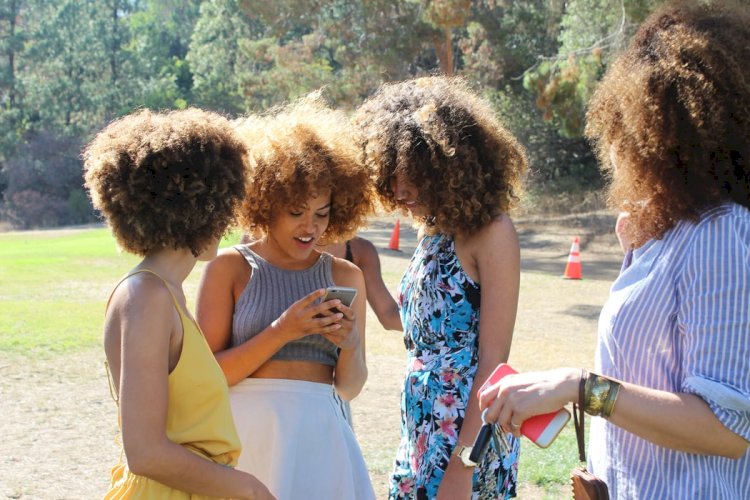A Guide For Black Women on How To Take Care Of Your Natural Hair – Part 1
Black hair is very attractive nowadays. It has always attracted people to get curls. Here is how to care for them.

Why Break Up With Your Straightener?
After breaking up with your straightener, here’s how to bounce back.
Your relationship with your hair most likely revolved around the need to alter your natural hair to fit the norm whether you are a Black woman who grew up in the wake of the weave or the heyday of the bone-straight hair trends of the 90s and 2000s. Having put emphasis on long, sleek hair that you can run your fingers through, large barrel curls, as well as beachy waves that are miraculously achieved from a spray bottle, were the trends for so long. It's safe to say that they are styles that require hair most Black women don’t naturally have while these are all beautiful hairstyles in their own way.
I absorbed a mass amount of straight hair paraphernalia as a teen sponge to all things fashion and beauty. Like nearly every woman on the cover of a magazine; like nearly every girl I went to school within my very white suburban neighbourhood, like many other Black women, I became obsessed with the idea of having straight hair. Until one day I was running late for a function and didn’t have time to flatten my curls, I straightened my hair religiously for over 12 years. How beautiful it was and how they wished they had my volume and curls, to my amazement nearly every person at that event commented on my natural hair. I found myself ditching the straightener altogether somewhere in between the Uber ride home and some incredible hair advice on Tracee Ellis Ross’s Instagram Stories.
No two women have identical hair needs as black hair especially biracial hair is about as individualised as a fingerprint.
How Does Society View Black Women And Their Hair?
As a biracial Black woman who grew up mostly living with my white mother, I was also tasked with learning about caring for my hair through the Internet and hairstylists who knew little about caring for natural hair as it would be easy for me to blame the lack of Black representation in media for my flat iron love affair. They would then say, my hair comes to be super curly too, or in the case with hair just like yours, I have this one client. Whereas my hair was unrecognisably different than my white stylists’ waves, or their one client with 4A textured hair in reality.
I began collecting tools, tips, and tricks from Black beauty bloggers, black stylists, and black women in my life in the hope of finding a one-size-fits-all Black hair routine with a lack of ancestral knowledge or access to other Black women in my family. Acting as everything from an unspoken language written in braids to simple bonding points between family and friends this perhaps explains why hair styling and braiding have and continue to be an integral part of African cultures, modern black culture, and the African diaspora.
Rewriting society’s relationship with Black hair, the bearers now have the power to reimagine what we deem as beautiful.
A study by the Perception Institute suggests that Black women still perceive a level of social stigma against their own natural hair while it's clear that the natural Black hair movement has taken off in the past five years. Who is the culprit then? That’s penetrated nearly every corner of the beauty industry and beyond it’s a villain of many faces. Through a generational lack of authentic representation, it shows itself. After generations of assimilation and ethnocide, it’s a communal lack of hair knowledge. There’s a lack of accessible products geared towards Black hair through residual racism. There is no denying how walking down a packed drugstore aisle of hair products that aren’t made for you makes you feel like it is you that needs to change through each of these elements affect every person on a varying level some subliminal whereas some as a smack in the face.
The Conclusion
That feature products catering to the Black community, the recent influx of diversity may have given rise to more listicles. A storytelling tool that has been used by a multitude of African cultures for thousands of years, however, the movement should also recognise that to black women as their hair is more than a monetary and social selling point. Made for our hair, solidarity, and representation we need accessible hair products.
That the collective consciousness realise Black hair is inadvertently political is pertinent. Black hair bearers now have the power to reimagine what we deem as beautiful and rewrite society’s relationship with black hair when less than one hundred years ago, it was a crime or detriment to our livelihoods to not be married to Eurocentric beauty ideals. The joy and reclamation of culture that comes with identifying and embracing our own unique hair stories, that’s a gravity-defying on a whole other level as breaking up with our straighteners is one step towards natural hair acceptance.
What's Your Reaction?





















